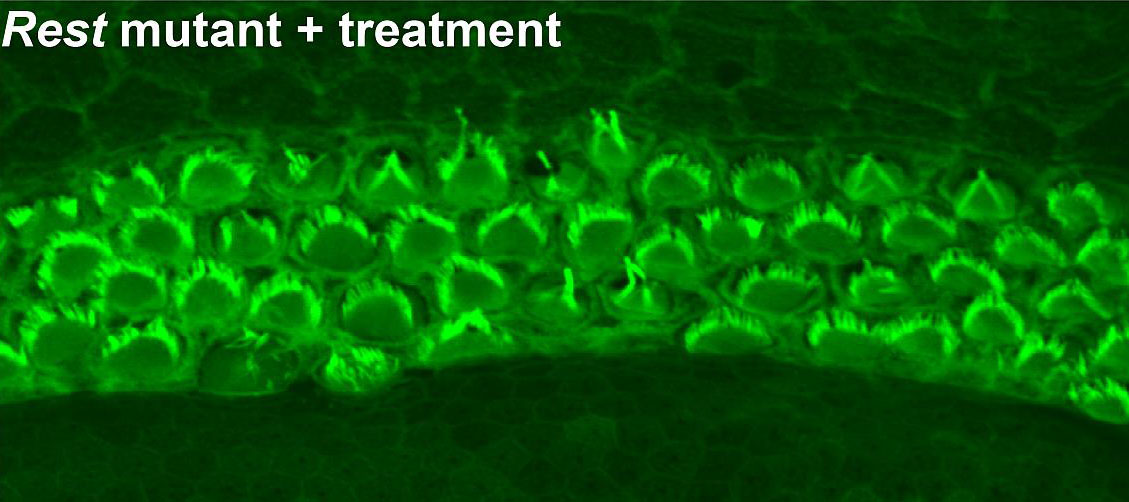Novel drug therapy partially restores hearing in mice
NIH and Iowa researchers shed light on molecular mechanisms of inherited form of human deafness
A small-molecule drug is the first to preserve hearing in a mouse model of an inherited form of progressive human deafness, report investigators at the University of Iowa, Iowa City, and the National Institutes of Health’s National Institute on Deafness and Other Communication Disorders (NIDCD). The study, which appears online in Cell, sheds light on the molecular mechanism that underlies a form of deafness (DFNA27), and suggests a new treatment strategy.
“We were able to partially restore hearing, especially at lower frequencies, and save some sensory hair cells,” said Thomas B. Friedman, Ph.D., chief of the Laboratory of Human Molecular Genetics at the NIDCD, and a coauthor of the study. “If additional studies show that small-molecule-based drugs are effective in treating DFNA27 deafness in people, it’s possible that using similar approaches might work for other inherited forms of progressive hearing loss.”

In mice with a mutation that induces hearing loss, treatment with HDAC inhibitors partially restored the organization and structure of hair cells (pictured above).
This page was last updated on Friday, January 21, 2022